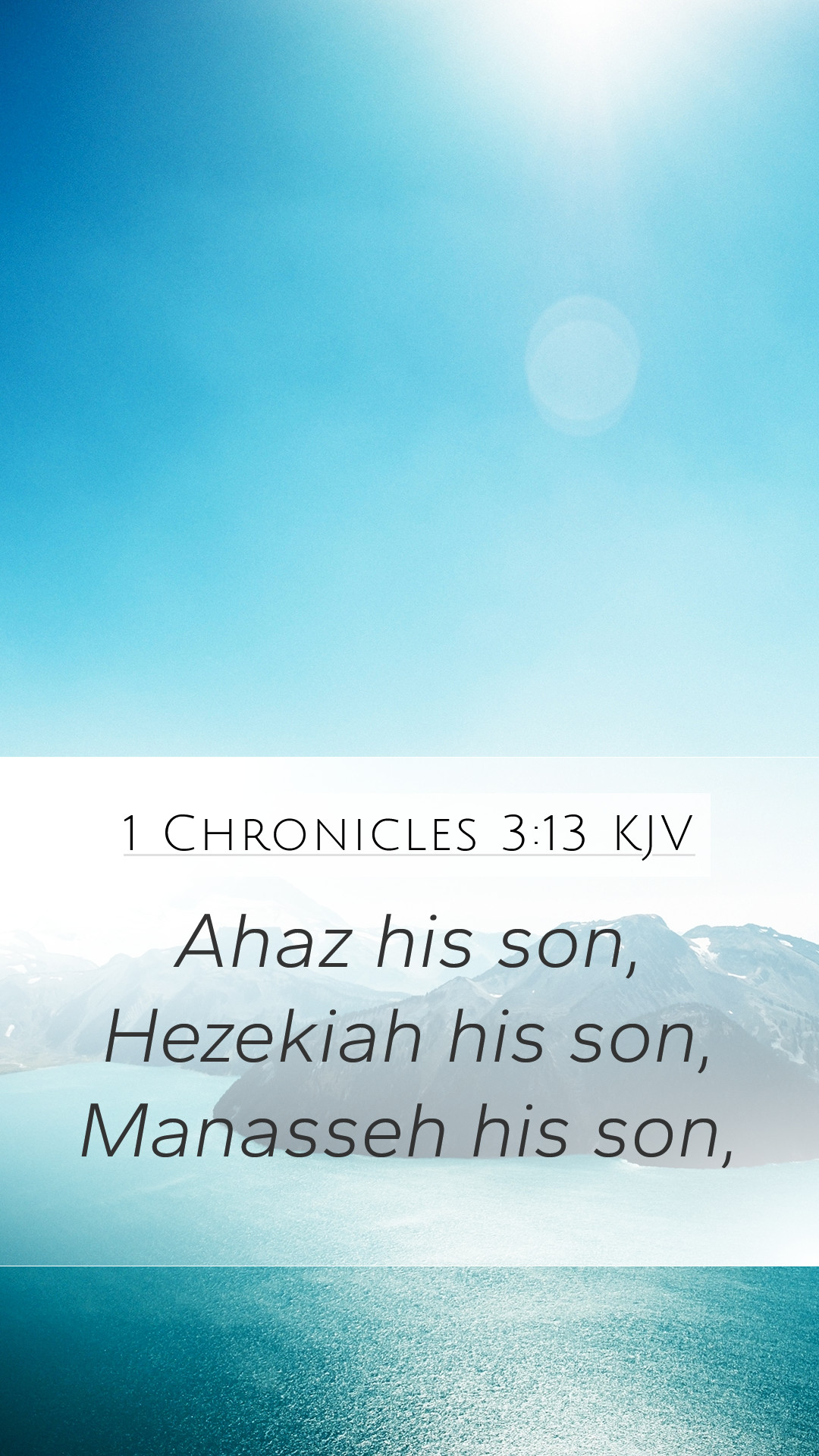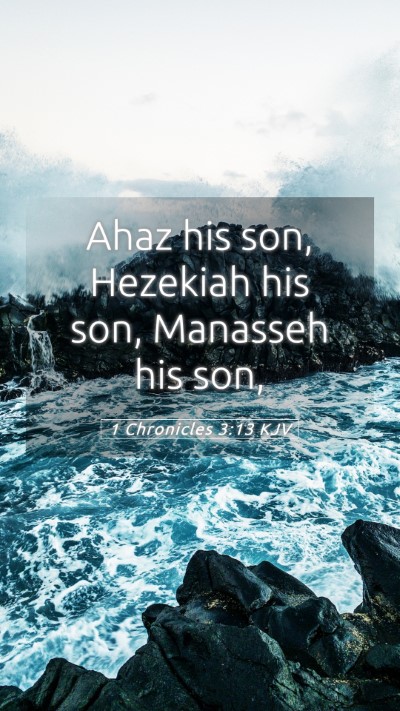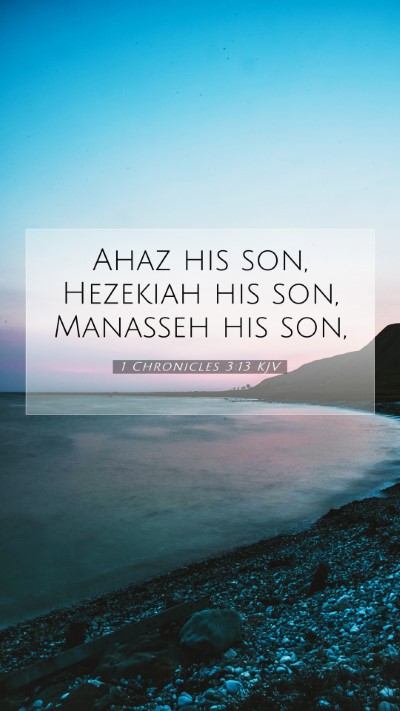Understanding 1 Chronicles 3:13 - Bible Verse Meaning
1 Chronicles 3:13 states, "And the sons of Jehoiakim: Jeconiah his son, and Zedekiah his son." This verse is part of a genealogical record that traces the lineage of David’s descendants, specifically during the time of the Babylonian exile.
Summary of the Verse
This verse serves as a reminder of the continuity of the Davidic line despite the significant political upheavals brought about by events such as the Babylonian captivity. The verse highlights:
- The importance of genealogy in establishing rightful succession.
- The significance of Jehoiakim as a key figure in this lineage, leading to Jeconiah and Zedekiah.
- The historical context of the Jewish exile and its implications for the nation of Israel.
Bible Verse Meanings and Interpretations
In analyzing this verse, we draw insights from public domain commentaries, such as those by Matthew Henry, Albert Barnes, and Adam Clarke:
Matthew Henry's Commentary
Matthew Henry emphasizes the chronicler's method of documenting Israel's history through genealogies, underscoring their significance in demonstrating God's faithfulness to His covenant. He points out that the lineage from Jehoiakim to Jeconiah connects the nation of Israel to divine promise despite their circumstances.
Albert Barnes' Notes
Albert Barnes notes that the verse highlights the political context of the time, with Jeconiah and Zedekiah serving as reminders of the consequences of disobedience to God. He reflects on the decline of Judah's kingship and how it relates to the prophetic announcements of their downfall.
Adam Clarke's Commentary
Adam Clarke elaborates on the implications of this genealogical entry, emphasizing that Jeconiah's designation as the son of Jehoiakim has prophetic ramifications in the context of the Messiah's eventual coming. He indicates that although the kingship ended, the root of David remained alive, securing hope for restoration.
Significance of the Verse
The verse's relevance extends beyond mere historical record; it carries deep implications for understanding God’s overarching plan for His people:
- Hope in Exile: This genealogy reassures the people of Israel that God's promises endure even amid judgement and exile.
- Continuation of the Davidic Line: It emphasizes the faithfulness of God in preserving the lineage through which the Messiah, Jesus Christ, would eventually be born.
- Lessons in Leadership: Reflecting on the reigns of Jehoiakim, Jeconiah, and Zedekiah offers lessons about obedience, leadership, and accountability to God.
Application of the Verse to Daily Life
Understanding this verse encourages believers to reflect on their own lineage and the covenant between God and His people. Some practical applications include:
- Recognizing God’s Faithfulness: In times of personal exile or hardship, reflect on the unwavering nature of God’s promises—a source of hope and stability.
- Embracing Heritage: Acknowledge your past through spiritual heritage, understanding how it shapes your identity in Christ.
- Leadership Lessons: Learn from the failures and successes of historical figures in Scripture to inform your leadership style and decisions today.
Cross References
For a more robust understanding of this passage, consider the following cross references:
- Jeremiah 22:24-30: Discusses Jeconiah’s fate and its prophetic significance.
- Matthew 1:12: Lists the genealogy of Jesus through Jeconiah, demonstrating fulfillment of prophecy.
- Luke 3:27: Further explores the lineage of Jesus, reinforcing connections to the Davidic line.
Conclusion
1 Chronicles 3:13 is more than a genealogy; it's a vital link that affirms God's perseverance with His people throughout history. It provides profound Bible verse meanings, rich Bible verse interpretations, and valuable insights for Bible study groups, online Bible study, and personal reflection. As we delve into the significance of this passage, let us carry forward the lessons of faith, hope, and the importance of heritage in our relationship with God.


